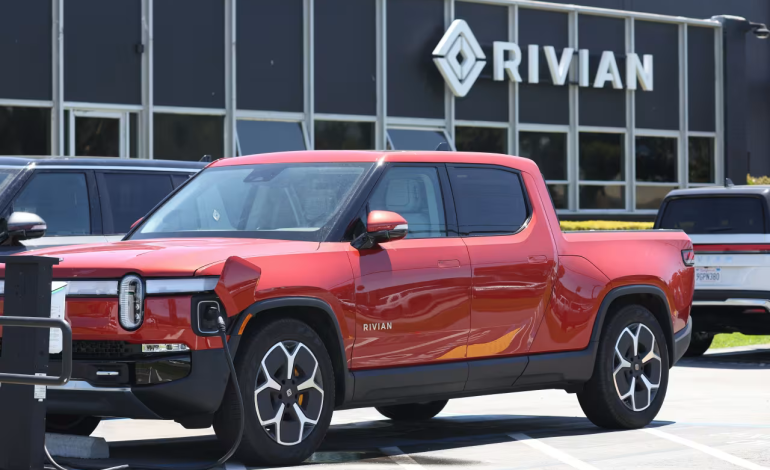Rivian Automotive, a US-based electric vehicle (EV) manufacturer, saw its shares rise 7% in premarket trading following conditional approval for a $6.6 billion loan from the Department of Energy (DOE).
The funding aims to boost Rivian’s EV production capabilities, with a focus on building a new manufacturing facility in Georgia and introducing a lineup of midsize electric vehicles.
The DOE’s Advanced Technology Vehicle Manufacturing program will provide $6 billion in principal and approximately $600 million in capitalized interest. The loan agreement is expected to be finalized before the upcoming presidential transition, signaling the Biden administration’s push to solidify its clean energy initiatives.
The new Rivian plant, located in Social Circle, Georgia, near Atlanta, will focus on producing sport utility vehicles (SUVs) and hatchbacks. Production at the site is slated to begin in 2028, with the first phase eventually delivering up to 200,000 vehicles annually. The project is expected to create 7,500 permanent jobs by 2030, along with 2,000 construction jobs during the build-out phase.
Rivian’s Georgia facility will complement its existing operations in Normal, Illinois, where the company produces high-end EVs like pickups and SUVs. The Georgia plant, however, will focus on more affordable models priced around $45,000, a shift from Rivian’s current lineup, which starts at approximately $70,000.
This expansion is vital for Rivian, which has struggled financially since going public in 2021. The company has spent over $19 billion on development but has yet to achieve profitability due to limited production output, projected at fewer than 50,000 vehicles this year.
Rivian CEO RJ Scaringe emphasized the importance of the loan, stating that it would enable the company to scale its US manufacturing footprint and develop more affordable models, including its future R2 and R3 vehicles.
The DOE loan is part of a broader federal effort to bolster domestic EV manufacturing and reduce greenhouse gas emissions. Transportation remains the largest source of carbon emissions in the United States. The Biden administration aims to have EVs comprise 50% of new car sales by 2030, up from the current 9%, through incentives like tax credits and federal loans.
Since the passage of the Inflation Reduction Act and the CHIPS Act, federal funding for clean energy and technology projects has become a cornerstone of the administration’s industrial strategy. Loans to automakers like Rivian, Tesla, General Motors, and Ford have supported the development of EVs and battery technology.
Rivian’s project has received bipartisan support, with Georgia Governor Brian Kemp, a Republican, backing the initiative for its economic benefits. However, some Republican lawmakers have criticized federal investments in EV manufacturing, arguing that they force automakers to produce vehicles consumers may not yet widely demand.
Amid these debates, the US government’s investments have played a critical role in helping automakers weather industry challenges, including a cyclical sales slump and high development costs for new technologies. The DOE’s Loan Programs Office, which oversees the Rivian loan, has lent nearly $27 billion for EV and clean energy projects since 2021, creating over 50,000 jobs.
The $6.6 billion loan, combined with Rivian’s recent partnership with Volkswagen on a $5.8 billion software and electronics venture, could provide a much-needed boost for the company. Rivian’s long-term success, however, will hinge on its ability to scale production, reduce costs, and meet growing consumer demand for competitively priced electric vehicles.
With input from Market Watch, the Wall Street Journal, and the New York Times.









